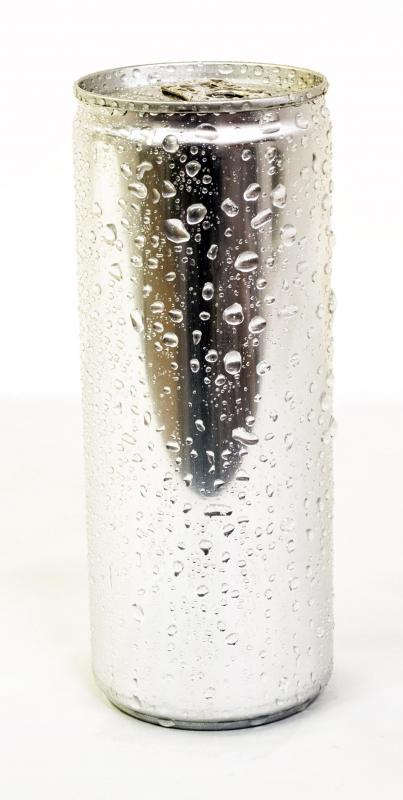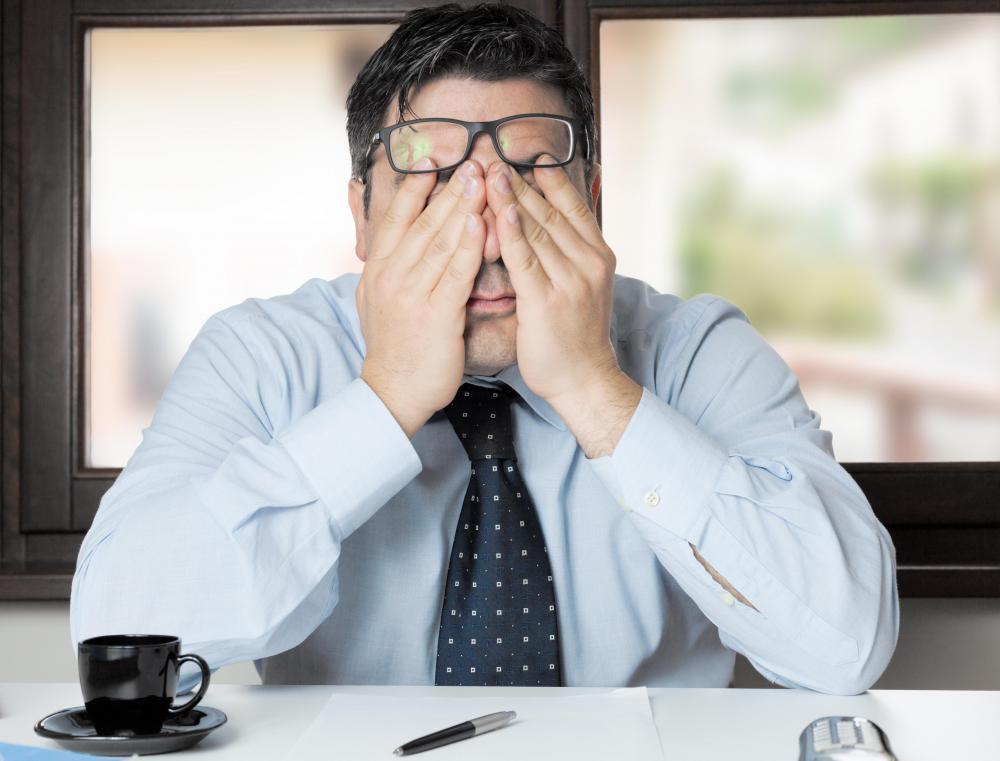At WiseGEEK, we're committed to delivering accurate, trustworthy information. Our expert-authored content is rigorously fact-checked and sourced from credible authorities. Discover how we uphold the highest standards in providing you with reliable knowledge.
What is the Connection Between Caffeine and Nausea?
Caffeine and nausea are associated in two ways. First, consuming too much caffeine in a short time period can cause nausea. Conversely, caffeine withdrawal can also cause nausea; for instance, if one drinks coffee every day and then suddenly stops for a day or two, nausea is a common occurrence. Moderate amounts of caffeine should, in general, not cause nausea.
Nausea and caffeine are most often connected when one consumes too much caffeine in too brief a time. For instance, many people drink coffee in the morning, then might get to work and have more coffee or even a caffeinated soda, followed by another soda or iced tea a few hours later for lunch, and then an energy drink in the afternoon. It is no surprise, then, that this overload of caffeine on the system leads to nausea. This much caffeine can also lead to anxiety, jitters, headaches, lightheadedness, and other unpleasant symptoms.

It is important to monitor caffeine intake to avoid this connection between caffeine and nausea. Drinking too much caffeine throughout the day can also make it difficult to sleep at night, which can perpetuate the cycle even further. Try to get energy from other sources, such as a healthy diet and regular exercise. If fatigue is persistent despite getting enough sleep, eating right and exercising, it may be necessary to visit the doctor to rule out any medical issues.

Caffeine withdrawal is the other primary connection between caffeine and nausea. Even consuming one cup of coffee or tea a day can lead to withdrawal symptoms if it is suddenly stopped; these symptoms usually include nausea and headache. Usually, the symptoms only last for one to two days, but they can last for as much as a week. Some people find that they become somewhat dependent on caffeine in order to avoid the unpleasant headache and nausea symptoms.

Other connections between caffeine and nausea are less direct. Because caffeine causes some people to become anxious or jittery, this can lead to nausea as well, even with just a small amount of caffeine. Caffeine may also raise the blood pressure, which may not only cause one to feel nauseous, but can also be dangerous for those with high blood pressure or heart disease. In general, people who are struggling with stress, anxiety, or who are being treated for high blood pressure should avoid caffeine as much as possible; pregnant women are also advised to avoid caffeine.
AS FEATURED ON:
AS FEATURED ON:


















Discussion Comments
An anxiety symptom that is brought on by caffeine is shaking. Sometimes you may feel nervous and weak because of too much caffeine. Rather than increasing productive energy, this causes your energy to be spent in nervous thought and trembling. This is not much fun, and can be avoided by better habits and less coffee.
Caffeine is being shown to be a bad addiction, because over time, a consistent coffee drinker needs more and more of it to function normally. Some people are wisely choosing to switch to dietary supplements such as ginseng, which have similar effects, but in a different part of the body. They don't cause chemical imbalances, but enable the body to process things faster. These readily available solutions are more helpful than caffeine, and will not stain your teeth.
Post your comments